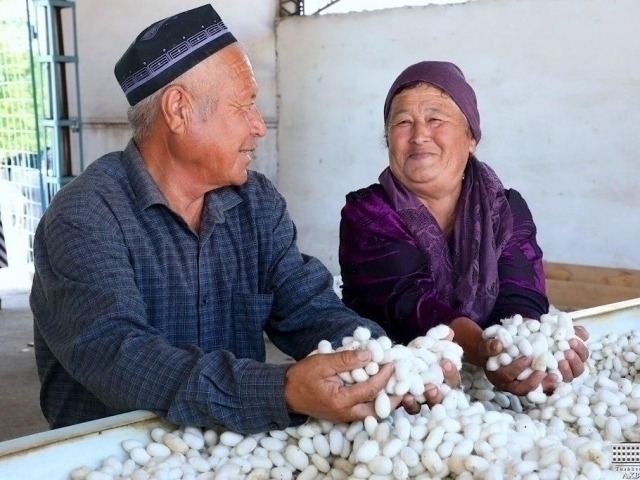Silkworm farmers were granted exemption from income and social taxes
Local
−
10 May 2978
Due to the low purchasing price of silk, there has been minimal interest among silk growers. Today, on May 10, President Shavkat Mirziyoyev chaired a video conference meeting on utilizing available opportunities in the leather and silk industry, with a focus on ensuring employment based on the experience of Saykhunabad.
Reports indicate that in response to the low interest from silk growers, the purchase price of cocoons has been increased by 25% through a presidential decree aimed at sericulture development. Pilakors are exempt from income and social taxes, with a 10% land tax applied to mulberry gardens.
Officials and mayors have been directed to allocate 105,000 hectares of land for establishing new mulberry gardens. These lands are divided into "lots" and auctioned, with the initial price set at 10%.
During the meeting, emphasis was placed on establishing alternative methods for silk production. For instance, in China, the cultivation of sesame worms for silk production is prevalent. The feasibility of implementing such practices in Uzbekistan, considering its climatic conditions, was discussed.
The Plant Quarantine and Protection Agency has been instructed to procure sesame seeds and worm seeds and commence testing at the Silk Industry Institute. Governors and officials in the sector have been tasked with organizing the cocoon season effectively and ensuring a loss-free harvest.
It was highlighted that due to the lack of advanced agricultural techniques and innovations in silkworm care and disease prevention, losses in cocoon extraction persist. Additionally, the importance of penetrating the European market, which accounts for 45% of the world's silk product imports, was underscored. There is an emphasis on increasing the export share of finished silk products, including deep processing of cocoons and manufacturing of textiles and home goods.
Expanding the cultivation of new, productive mulberry varieties in mulberry groves, which serve as the feed base for cocoons, was deemed important. It was reported that planting one or two rows of mulberries on approximately 1 million hectares of cotton fields could yield 50-60 thousand tons of feed reserves.
Live
All




